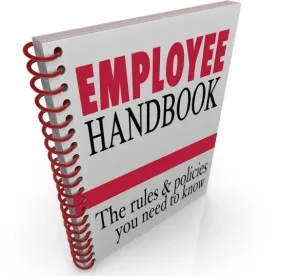During the last decade, a number of NLRB decisions faulted employers for written policies that were considered to be overbroad in violation of the National Labor Relations Act. These rulings sprang largely from the NLRB’s decision in Lutheran Heritage Village-Livonia, 343 NLRB 646 (2004), where the Board set forth a standard for evaluating the lawfulness of employer policies that did not directly implicate Section 7 rights. The Board in Lutheran Heritage held it evaluated otherwise lawful language to determine if the “employees would reasonably interpret the language as restricting Section 7 rights.” Under Lutheran Heritage the Board was supposed to view the totality of the policy and not fragments. This decision was a well-intended attempt to provide a framework for evaluating the language of employer policies. In the years after its issuance, however, the Board took to something like a grand inquisition of all employer policies and often expanded the test by replacing the “would” with “could.” The Board often examined fragments of a policy without regard to the full context. Allegations regarding handbooks became something of a cottage industry as violations were sought to gain leverage in labor disputes. See here and here, for example.
The Lutheran Heritage standard was discarded by the Board last year.
Since late last year, very few NLRB decisions have issued involving handbooks. The General Counsel has given a strong indication he is not pursuing an aggressive stance on employer policies. This is not surprising, of course. The Board, currently anyway, clearly is not receptive to these kinds of violations. A number of recently issued NLRB decisions note that the involved union withdrew handbook allegations in pending litigation. This action was taken to avoid getting decisions from the current NLRB finding policies to be lawful. That just would not do in today’s fractured labor relations climate. When there is a change in the administration, and the make-up of the Board changes, there is little doubt the handbook-violation industry will ramp-up with a renewed fervor.
This is not to say that all handbook violation cases have gone away. There are a variety of policies the Board would find in violation of the Act. One such case is the Board’s recent decision in Constellation Brands, U.S. Operations, Inc., 367 NLRB No. 79 (January 31, 2019). This case involved a number of allegations stemming from a hard fought union campaign. In the original complaint there were a few allegations that the employer’s policies were overbroad in violation of the Act. While the litigation was pending, the Board overruled Lutheran Heritage, prompting the union and General Counsel to seek withdrawal of all but one of the handbook allegations.
Handbook Stated Benefit Given to Non-Union Employees
The remaining allegation concerned the language in the employer’s incentive plan which stated “All non-union full time and regular part-time employees of the Company are eligible for the incentive plan.” The General Counsel alleged that this language violated Section 8(a)(1) of the Act because it expressly implicated Section 7 rights.
The Administrative Law Judge agreed, holding:
Board precedent is clear and unmistakable on this issue: employer rules, statements, provisions or plans that afford benefits to employees contingent on their non-representational status violate Section 8(a)(1) of the Act. . . .Employers can avoid such coercive impression by simply using language that conveys the messages that wages and benefits of represented employees are ultimately subject to what the parties agree to in collective bargaining–without the inference that they are automatically disqualified.
On appeal, the Board affirmed with Member Emanuel observing that the language at issue “conveyed the message that employees choosing union representation are automatically ineligible for the plan.”
Takeaways
The unbridled scrutiny of employer policies is dormant. For now. This case is a reminder that that policy language discussing the applicability of benefits to”non-union” employees should be accompanied by a fuller explanation that employees represented by unions are subject to collective bargaining.
The case also is a reminder of how far the law under the National Labor Relations Act can swing in a short period of time.



 />i
/>i

